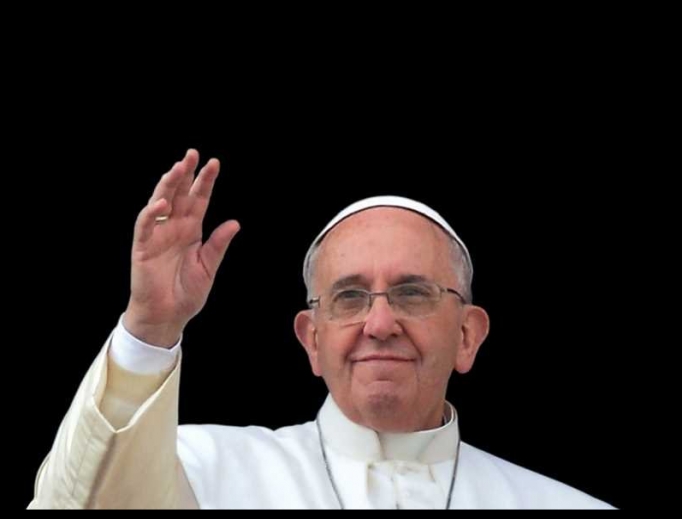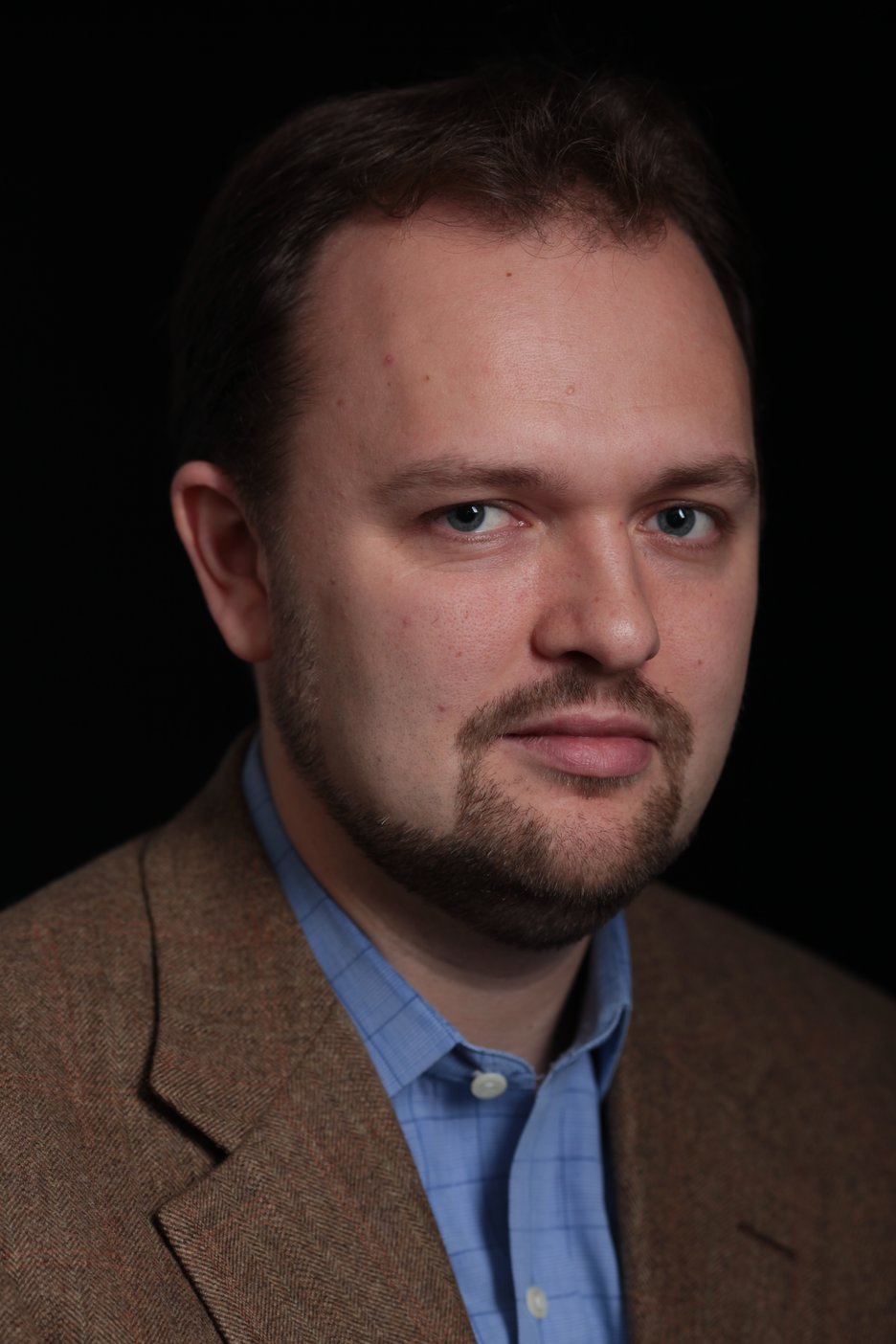Ross Douthat’s Take on Where Pope Francis Is Taking the Church
Commentator looks at this papacy in his new book, To Change the Church.

Ross Douthat is an op-ed columnist for The New York Times, the film critic for National Review and former senior editor of The Atlantic. Douthat converted to the Catholic faith when he was a teenager. “I will die a Catholic,” he says. “There is no getting rid of me now.”
Douthat is the author of four books, including Bad Religion: How We Became a Nation of Heretics (Free Press, 2013). Douthat’s new book, To Change the Church: Pope Francis and the Future of Catholicism (Simon and Schuster, 2018) offers a provocative look at Pope Francis’ efforts to liberalize the Church’s approach to morality: efforts that, according to Douthat, have thrust the Church into a state of theological crisis.
He shared his thoughts on this theme via an email interview with Register correspondent Celeste Behe April 12.

Regarding the Church’s teaching on marriage, you say that “its striking continuity from the first century to the twentieth … is a study in what makes Catholicism’s claim to a unique authority seem plausible to many people, even in a disenchanted age.” To what degree do you, as a convert to the Catholic faith, think that potential converts will be deterred by the current confusion within the Church over marriage-related issues?
Conversion is a complicated alchemy, and no conversion is alike, so I’m hesitant to make sweeping generalizations. I think it’s reasonable to guess that the Francis era is likely to discourage a certain kind of conversion that was common in the John Paul II era, in which intellectually-minded Protestants found themselves appreciating the papacy for its firm stance against the spirit of the age, its continuity with the Christian past, and eventually came to appreciate the Catholic synthesis in full.
Indeed, the Pope’s strategy seems to assume that such conversions are less important than the goal of encouraging reversion — of bringing Catholics who have drifted from the Church back home. But for both possibilities, conversion and reversion, we should also be a little skeptical that the character and controversies of a particular pontificate have the determinative effect on a process that can be so personal, mystical and strange.
You recently spoke at Villanova University’s Charles Widger School of Law. If a law student were to ask you to name three key arguments in defense of Pope Francis, what would those arguments be?
The strongest arguments for the defense: First, the Church has changed before, on issues as diverse as usury and religious liberty, and its view of marriage has evolved; why should this particular pastoral evolution be an impossible leap? Second, the Pope is the pope, and conservative Catholics in particular are supposed to submit to his interpretations; aren’t conservatives in this case just substituting private judgment for the teaching of Peter’s successor? Third, our sexual culture in the West is sufficiently debased and post-Christian, and Catholic catechesis is so abysmal that we should give the benefit of the doubt to anyone whose marriage failed and simply assume — without burdening them unreasonably with the annulment process — that they were probably incapable of the true consent that Catholic marriage requires.
What would be the key arguments on the other side of the case?
To the first point, the Church’s teaching on marriage’s indissolubility is simply more fundamental than other teachings, like usury, where “development” looks a bit like real reversal; it goes back to the clear words of Jesus himself, whose response to his disciples’ shock at his extremism was to extol the alternative of celibacy, and as such is much more irreformable even than other sexual teachings (no to contraception, fornication, masturbation) that depend upon the vision it implies.
To the second, the Pope’s undoubted authority cannot be invoked to justify leading the Church into self-contradiction, and if a pontiff so brazenly departs from ancient and recently-reaffirmed practice, faithful Catholics have every right to question him.
To the third, the problems with our sexual culture may be a reason to err on the side of mercy in the annulment process, but ours is hardly the first era in which marital readiness was uncertain (think of the long ages of arranged marriage); marriage is not a counsel of perfection that only a perfectly-formed Catholic is supposed to be able to undertake; and to allow auto-annulments is not to err on the side of mercy, but to turn the idea of indissolubility into a pleasant fancy, a doctrine with no practical import in real life.
As a parent of college students, I often find myself having to explain “what Pope Francis really meant” by one of his ambiguous remarks. What advice do you have for Catholic parents in a similar position?
It depends on the age of your kids: My own children, at 2, 5 and 7, are not being indoctrinated into their father’s criticisms of the Pope! But the older they are, the more reasonable it is to simply tell them directly what you think is going on.
If the media is misinterpreting the Pope, tell them that; there’s no reason for them not to learn early that journalists can get things wrong. And if you think there are good reasons to think that Francis said something with which a faithful Catholic can disagree, you should be honest about that.
Respect for the pope is a virtue, but a simplistic papolatry is a vice, and any 13-year-old Catholic should be capable of grasping the idea that papal infallibility is a limited charism; indeed, bringing them to an adult faith requires teaching them about the Church’s weaknesses and the mistakes its leaders often make, before the world and experience educate them in those realities instead.
Throughout his pontificate, Pope Francis has focused on the theme of mercy. Yet, you write that, “as theological conservatives have turned on him,” the Pope has “turned on conservatism generally, so that instead of correcting its errors he is ignoring its insights.” Might this strike faithful Catholics as something of a double standard?
I suppose I might put it this way: Even if the Holy Father is completely right in every particular, he sometimes evinces a lack of charity — perhaps even mercy — for those Catholics who are resisting his innovations, not on the basis of some dusty medieval codex or in a spirit of pharisaical inflexibility, but out of what they see, very plausibly, as fidelity to things that were taught for hundreds of years and reaffirmed only yesterday.
If conservatives are wrong, we are wrong in, I think, an extremely understandable and reasonable way, and Pope Francis might take the edge off present controversies a bit if he extended a touch more understanding, even a touch more mercy, toward those of us who are doubtful that a Church that taught “A” yesterday can reasonably and consistently teach what looks more like “B” tomorrow.
Do you think it more likely that Pope Francis will be remembered as a “heroic revolutionary” or as an “ambitious pope who overreached”?
The latter, I’m afraid. But what I’m sure of is that he’s put himself in a position where those are increasingly the only two plausible legacies. The Church will either have to tacitly repudiate his innovations in order to restore consistency and continuity, or else follow them further to where they seem to lead, in which case his impact will be genuinely revolutionary. At this point, it’s hard to see a middle ground (unless he changes course dramatically); I may be wrong about the wisdom of his vision, but I’m sure I’m right that the Catholics of the future will remember this pontificate as an exceptionally significant one, for good or ill.
Celeste Behe writes from Bethlehem, Pennsylvania.
- Keywords:
- catholic church
- celeste behe
- pope francis
- ross douthat

















